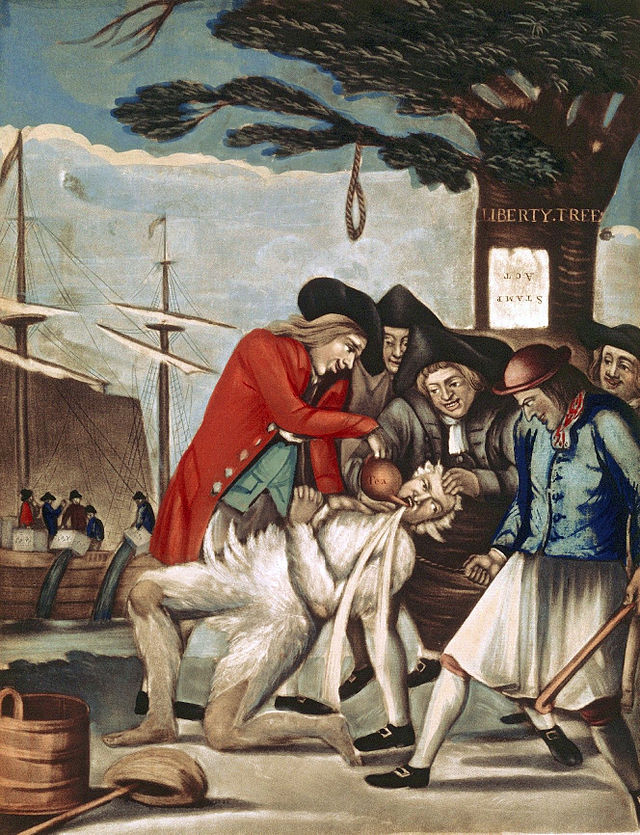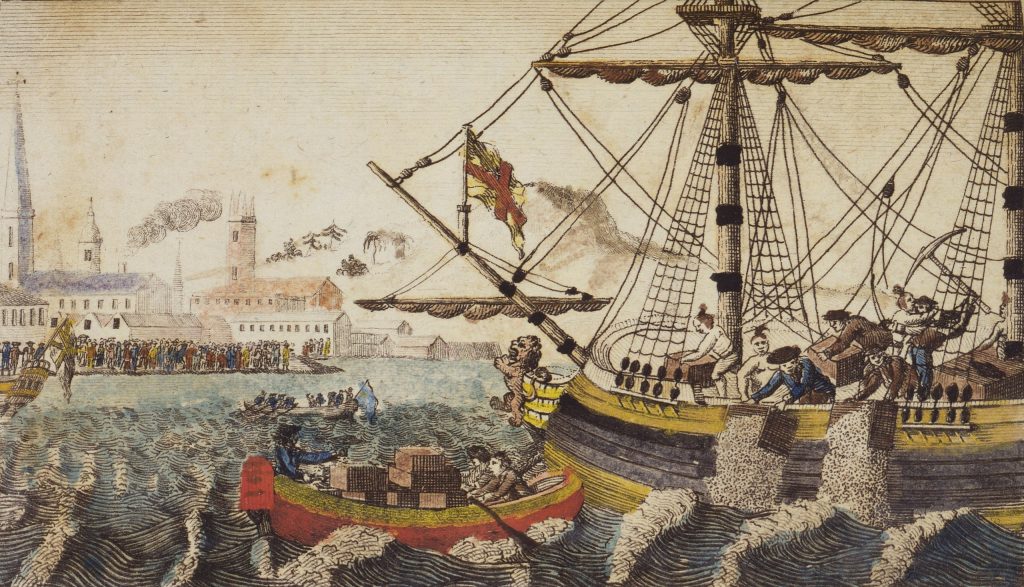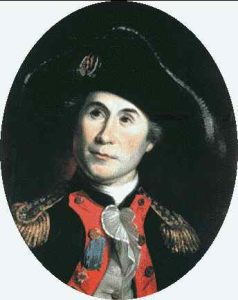Contents
Contents
The Boston Tea Party was an act of rebellion against the British government that occurred in Boston on December 16, 1773.
In this article, we’ve explained what happened during the Boston Tea Party. We’ve also explained the effects and aftermath of the event, and provided some interesting facts.
Summary
Historical context
Beginning in 1764, the British began implementing new taxes and restrictions in the Thirteen Colonies of America, which gradually inflamed tensions between the colonists and the government.
First came the Sugar Act, then the Stamp Act of 1765, which was met with widespread protests. The colonists resented that the British were passing new taxes and other laws without their approval, since the colonies had no representation in British parliament.
After being forced to repeal the Stamp Act, the British imposed the Townshend Acts in 1767 and 1768. This further inflamed tensions, especially in Boston, leading to the Boston Massacre.
In 1773, the British passed the Tea Act, making British East India Company tea cheaper, thereby undercutting colonial traders, including smugglers. The act also tried to encourage the colonists to pay British taxes on tea imports under the Townshend Acts, which they resented, leading to protests and violence.
These protests were often centered in Boston, where anti-British sentiment was high, and were often organized by the Sons of Liberty – a Boston-based Patriot rebel group.
Given that tension was already high between the colonists and the British, the Tea Act led to widespread resistance, especially among merchants and colonial government officials. British tea shipments were left abandoned at port, and some were sent back to England.
The Boston Tea Party
On December 16, 1773, members of the Sons of Liberty boarded British cargo ships docked in Boston Harbor, and dumped the tea on board into the sea.
342 chests of tea were destroyed – the entire ships’ cargo – worth more than $1m in today’s money. The rebels disguised themselves as Mohawk warriors (Native Americans) to hide their identity, and to symbolize that they identified as American, instead of British.
The event lasted about three hours, and approximately 50 to 100 people participated in boarding the ships.
Aftermath
When news of the Boston Tea Party reached the United Kingdom, the British were appalled. Even politicians who were sympathetic to the colonists thought that the protestors’ actions were radical and destructive, undermining any legitimate grievances they might have had.
The Boston Tea Party was widely considered an act of treason in Britain. It was thought that the colonists’ rebellion, including other recent protests, could not go unpunished.
Leading Patriots, such as Samuel Adams, argued in favor of the protestors, calling their actions a justified protest. They viewed the Tea Party as a necessary stand against unjust taxation, specifically targeting the goods that the British were trying to control the market for.
In the months that followed, open rebellion against British authority continued, especially in Boston. The Sons of Liberty raided tea warehouses, and on January 25, 1774, a British customs officer named John Malcomb was kidnapped by a mob, publicly tarred and feathered, and forced to drink tea.

Effects
The Boston Tea Party led to a significant escalation in tension between the Patriot and Loyalist sides, eventually leading to the American Revolution.
In response to the Boston Tea Party, between March and May 1774, the British implemented the Coercive Acts, also known as the Intolerable Acts in America.
The Coercive Acts took specific action to punish the colonists for the Boston Tea Party, such as shutting Boston Harbor until the destroyed tea was paid for. This led to another escalation in resistance efforts against the British, including the formation of local militias, in preparation for the possibility of war.
The Intolerable Acts also unified the colonies against the British – many colonies sent food and other supplies to Boston while their port was closed. Eventually, the First Continental Congress was formed to discuss how to respond to British overreach.
Facts
- The colonists boarded three ships during the Boston Tea Party – the Dartmouth, the Eleanor, and the Beaver. These ships were actually American-owned, although they carried British cargo.
- Protestors in Boston originally intended the tea on board the Dartmouth to be sent back to England. However, the colonial governor of Massachusetts, Thomas Hutchinson, refused to let the ship leave, prompting the Sons of Liberty to board the vessel, along with the Eleanor and Beaver.
- The Boston Tea Party was not widely celebrated until the 1830s. At the time, the Patriots were reluctant to celebrate the destruction of goods. It was only long after the war was won did the event receive widespread recognition as an act of patriotism.
- After the Boston Tea Party, rates of tea drinking massively declined in the colonies, as it was considered unpatriotic. Coffee became most people’s drink of choice.
- During the Boston Tea Party itself, no acts of violence occurred – the incident was a peaceful protest.
- For weeks after the Boston Tea Party, the harbor was said to have a faint tea scent, especially after a rainfall, as a lingering reminder of what happened.




